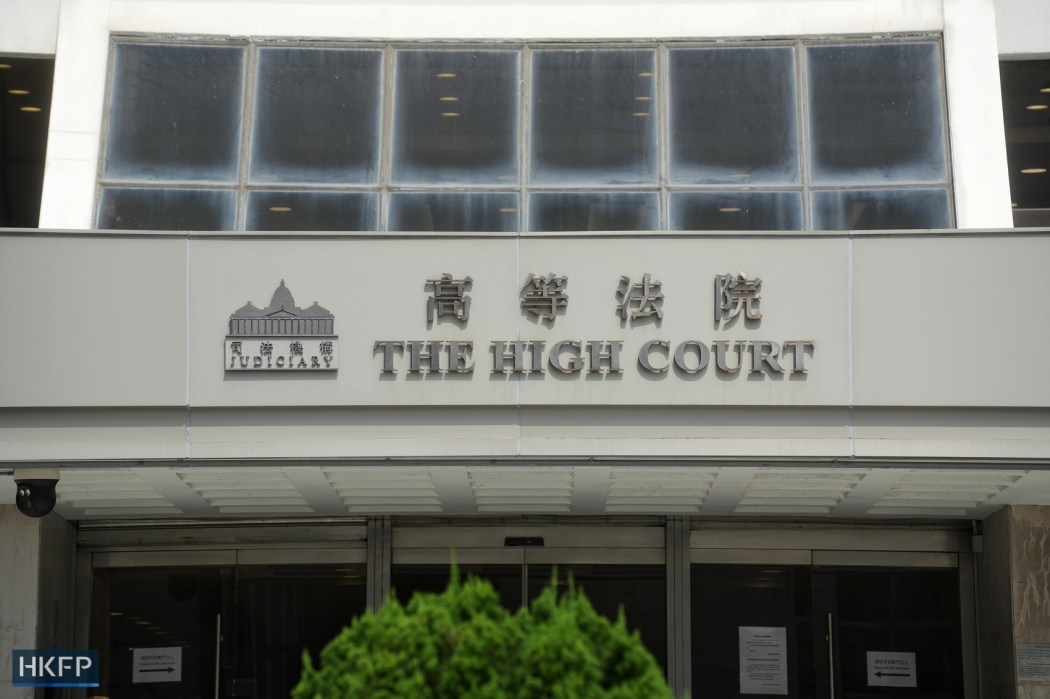Hong Kong’s Chief Executive John Lee has defended a new ordinance allowing the enforcement of mainland Chinese court orders in civil cases in Hong Kong, saying that there would be “fair process.”

The Mainland Judgements in Civil and Commercial Matters (Reciprocal Enforcement) Ordinance offers reciprocal recognition and enforcement of civil judgements in Hong Kong and mainland Chinese courts. It will come into effect next Monday.
Media outlet Nikkei Asia reported last December that wealthy individuals from China were concerned about the protection of their assets in Hong Kong and the impact of the ordinance on the city’s common law system. A wealth manager told the outlet that the move could lead to the wealthy relocating their assets to places like Singapore and Switzerland.
When asked by HKFP at a Tuesday press conference about how to reassure investors, Lee said that judgments made by mainland Chinese courts would not automatically take effect in Hong Kong. The parties involved would need to launch a legal process and successfully “register” the judgements in Hong Kong’s courts.
“So the relevant party’s rights, and also, his opinions and grounds for objection, will be heard by court according to legal principle to ensure that they operate within all the legal confines and there will be a fair process for all the opinions and reasons to be heard,” Lee said in English.
“So that is the rule of law and that is justice ensured in the whole process, ” Lee said.
According to the ordinance, anyone who wishes to register a mainland Chinese civil rulings in Hong Kong must make an application at the Court of First Instance at the High Court.

Once the application is accepted, the Hong Kong court may order the debtor’s assets to be “frozen” in order to prevent any “dissipation,” according to global law firm Mayer Brown.
“The judgment debtor can contest the registration, however, the debtor will generally only have 14 days… to do so and only on a limited number of grounds relating to procedural fairness and public policy,” the law firm said.
‘Fallacies’
A spokesperson for the Department of Justice said in a statement on Tuesday that there were “fallacies” in public discussion about the new ordinance.
The spokesperson said some people were worried that Hong Kong and mainland Chinese courts would notify each other or exchange information about legal cases after the ordinance comes into effect.

There were also concerns that “judgments of the Mainland courts would become automatically applicable in Hong Kong, and assets in Hong Kong could be confiscated by the Mainland directly,” the spokesperson said, adding that this would not be the case.
The DoJ said that legal proceedings should be completed in Hong Kong’s courts before a Chinese civil ruling is registered and sees further enforcement in Hong Kong.
Courts on both sides would not exchange information on cases, the DoJ said.
According to Nikkei Asia, private bankers in Hong Kong were concerned about the potential ambiguity of how the ordinance would be enforced.
Support HKFP | Policies & Ethics | Error/typo? | Contact Us | Newsletter | Transparency & Annual Report | Apps
Help safeguard press freedom & keep HKFP free for all readers by supporting our team

LATEST FROM HKFP
HKFP has an impartial stance, transparent funding, and balanced coverage guided by an Ethics Code and Corrections Policy.
Support press freedom & help us surpass 1,000 monthly Patrons: 100% independent, governed by an ethics code & not-for-profit.











